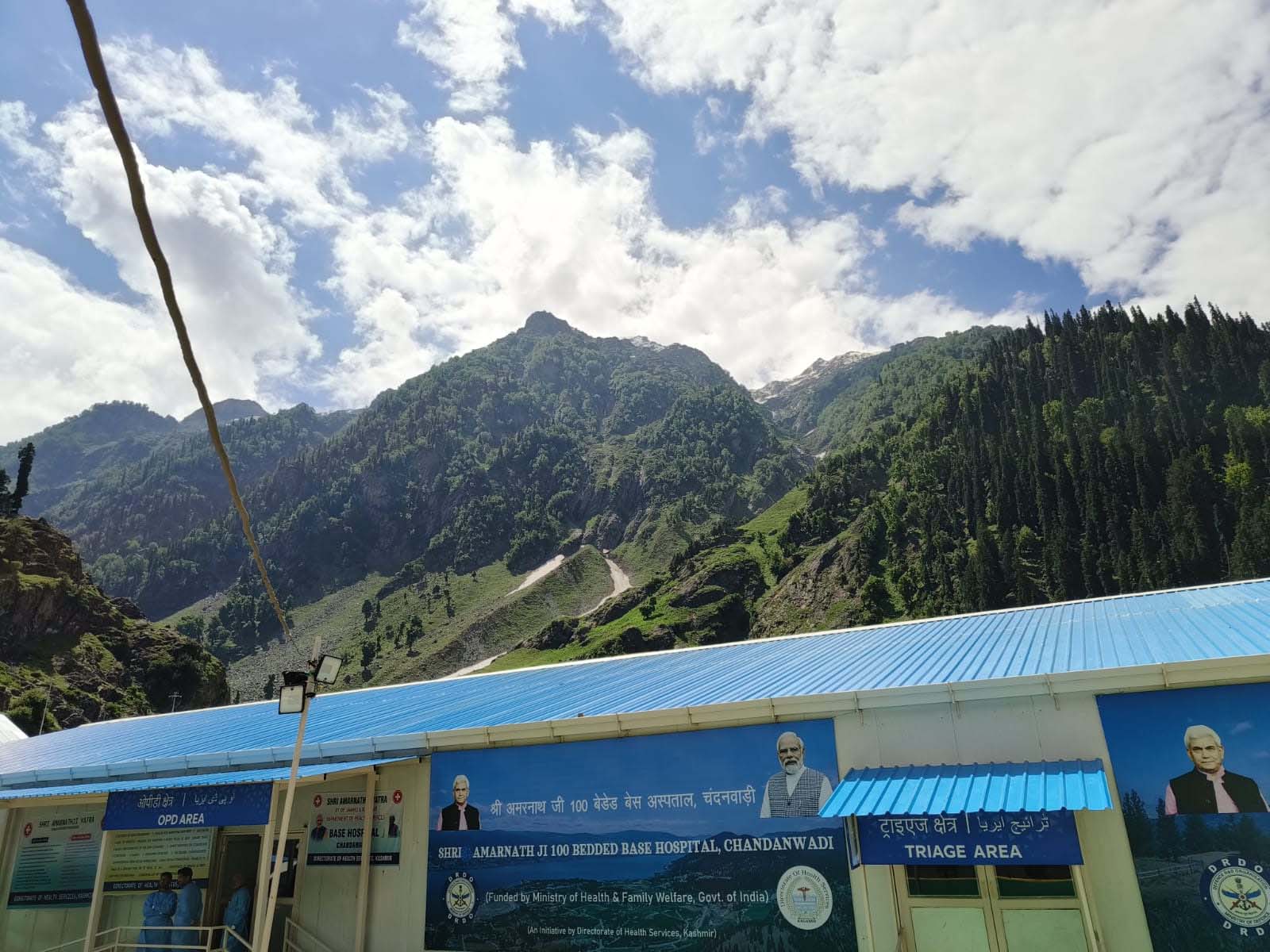SRINAGAR, Jul 6: Healthcare workers, including doctors and para-medical staff, are working round the clock at the 100-bedded specialty hospital at the Amarnath Yatra base camp here in Jammu and Kashmir’s Ganderbal district, ready to tackle any eventuality.
Last year, flash floods near the holy cave shrine had killed 15 people and injured many others.
The J-K administration has set up two specialty hospitals at the base camps of Baltal, in Sonamarg area of central Kashmir’s Ganderbal, and Chandanwari, in Pahalgam area of south Kashmir’s Anantnag district, the twins routes for the yatra.
Both the hospitals — 100-bedded each — were built by the DRDO in a record time of 15 days. They were inaugurated by J-K Lieutenant Governor Manoj Sinha on June 28.
The two makeshift and state-of-the-art hospitals are equipped with the most advanced equipment, separate blocks for doctors and nursing staff, ICU wards, oxygenated wards and triage areas and other required inventories for all critical medical care.
At the Baltal hospital, chief medical officer (CMO), Ganderbal, Dr Afroza Shah said the medical facility carries 100 beds, which include 30 residential beds and 70 clinical beds.
”Among these, 29 are oxygen beds and nine are triage beds. Intensive Care Unit has four beds,” she said.
The CMO said the staff working at the hospital has been acquired from all over the country and has been facilitated by the Ministry of Health and Family Welfare.
”Around 1,200 healthcare workers — both doctors and para-medical workers — including from outside Jammu and Kashmir, are working here,” Shah said.
The official said the hospital has two separate OPDs for male and female patients.
Abundant space is available in the form of a waiting area including washroom facilities. Fully functional and well-equipped laboratories are also available where all kinds of tests can be performed, she added.
Radiologists, X-rays, ultrasonography machines, and cardiac monitors are provided. A liquid medical oxygen plant has been installed here, the CMO said.
Shah said to cater to high-altitude-related sickness, oxygen is readily available at the facility including medium size, portable and bulk oxygen cylinders.
A total of 16 oxygen booths are set up along the 16-kilometre track, that is from Baltal to Domail — out of which six booths are permanent and the rest 10 are mobile, she said.
”Where the hill becomes steeper, four to five mobile booths are also provided along the stairs,” she added.
Patients and their attendants visiting the hospital expressed satisfaction with the facilities.
”All the facilities at the hospital are impressive. I am amazed after seeing such a fully-equipped hospital,” Kushal Goyel, a yatri from Chandigarh, said.
It is just like any other upscale private hospital, he added.
Zubair Gulzar from Kulgam said the facilities at the hospital were quite well and hygiene was also taken care of.
Asked whether the hospital was ready to deal with any kind of eventuality including of the magnitude like the last year, the CMO Ganderbal said the facility is fully equipped and prepared for dealing with any possibility including a natural disaster.
”To deal with any kind of natural disaster and to handle any emergency, we are fully equipped and prepared for that. A team of disaster management is also available here in order to tackle any kind of emergency,” she said.
Apart from the state-of-the-art hospital, there are four more hospitals along the Baltal axis — Base Hospital Baltal, Base Hospital Panchtarni, Base Hospital Lower Holy Cave, and Base Hospital Holy Cave — where all kinds of facilities are available to cater to any possibility including the breathlessness issues often confronted by the pilgrims, according to officials. (Agencies)


